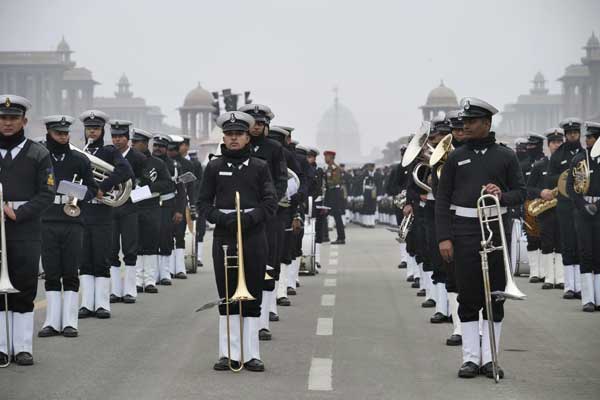Politics over performance: Marine band scraps youth concert

[Soldiers on a parade. Photo credit to Pexels]
A high-profile concert featuring the U.S. Marine Band and a group of young musicians of color was abruptly cancelled this spring following a sweeping executive order from President Donald Trump.
The event, which was originally scheduled for May 4 at the Kennedy Center’s Terrace Theater, was cancelled due to the administration’s policy changes that impacted cultural programming across federal institutions.
The directive, titled “Ending Radical and Wasteful Government DEI Programs and Preferencing,” aims to defund federal initiatives related to diversity, equity, and inclusion across agencies.
Cultural entities affiliated with the military, including its performance ensembles, were not exempt from the changes.
The Marine Band cited the order when it informed Chicago-based nonprofit Equity Arc that it would no longer be able to proceed with the scheduled joint concert.
Equity Arc had partnered with the Marine Band to spotlight talented pre-college musicians from historically marginalized communities.
Approximately 30 students had been selected to perform works by Sousa, Carlos Simon, and other composers in a program designed to support both musical excellence and inclusion.
Stanford Thompson, founder of Equity Arc, described the moment as “heartbreaking.”
According to Thompson, the concert was not political, but about giving deserving youth an extraordinary musical opportunity.
The Marine Band, known as “The President’s Own,” had originally approached Equity Arc in 2022, asking for help to diversify its applicant pipeline.
Organizers reported that a growing number of students of color were dropping out of classical music before reaching professional levels.
The initiative was developed to reverse that trend.
However, the new executive order effectively ended the collaboration just weeks before rehearsals were set to begin.
Students were left devastated.
Eighteen-year-old trumpeter Ricardo Lazaro said he felt “gutted” by the cancellation.
Clarinetist Rishab Jain, who will attend Harvard this fall, described it as “a silencing of art.”
In a show of solidarity, retired military musicians stepped forward.
Former members of the Army, Navy, Marines, Air Force and Coast Guard bands organized a new ensemble to support the young performers.
They arranged a replacement concert at the Strathmore Music Center in Maryland.
The performance featured the same students and program, conducted by retired military personnel and supported by volunteers.
Audience members described the concert as emotional and defiant.
It was a powerful gesture of solidarity in the face of political interference.
The Kennedy Center has not publicly commented on the cancellation.
But the institution has seen a series of abrupt changes under Trump’s leadership.
In early 2025, Trump replaced board members, appointed Richard Grenell as interim director, and began eliminating DEI-related programs and events.
Several other cancellations followed, including a children’s musical and a scheduled performance by the Gay Men’s Chorus.
The Broadway musical Hamilton later withdrew from its planned 2026 Kennedy Center run.
Arts organizations and civil liberties groups have condemned the administration’s actions.
They argue the administration is using executive power to silence diverse artistic voices and reshape American cultural life.
Ticket sales at the Kennedy Center have reportedly plummeted since the changes were implemented.
Despite this decline, the Trump administration continues to frame the shake-up as a financial restructuring.
Meanwhile, young musicians and their mentors are not backing down.
In media interviews following the Strathmore concert, many described the experience as one of the most meaningful performances of their lives.
They say it deepened their commitment to music — and to using their art as a form of resistance.
For these young musicians, performance is no longer just an act of expression.
It has become a statement.

- Justin Ha (Junwoo Ha) / Grade 11 Session 2
- St. George’s Senior School

![THE HERALD STUDENT REPORTERS [US]](/assets/images/logo_student_us.png)
![THE HERALD STUDENT REPORTERS [Canada]](/assets/images/logo_student_ca.png)
